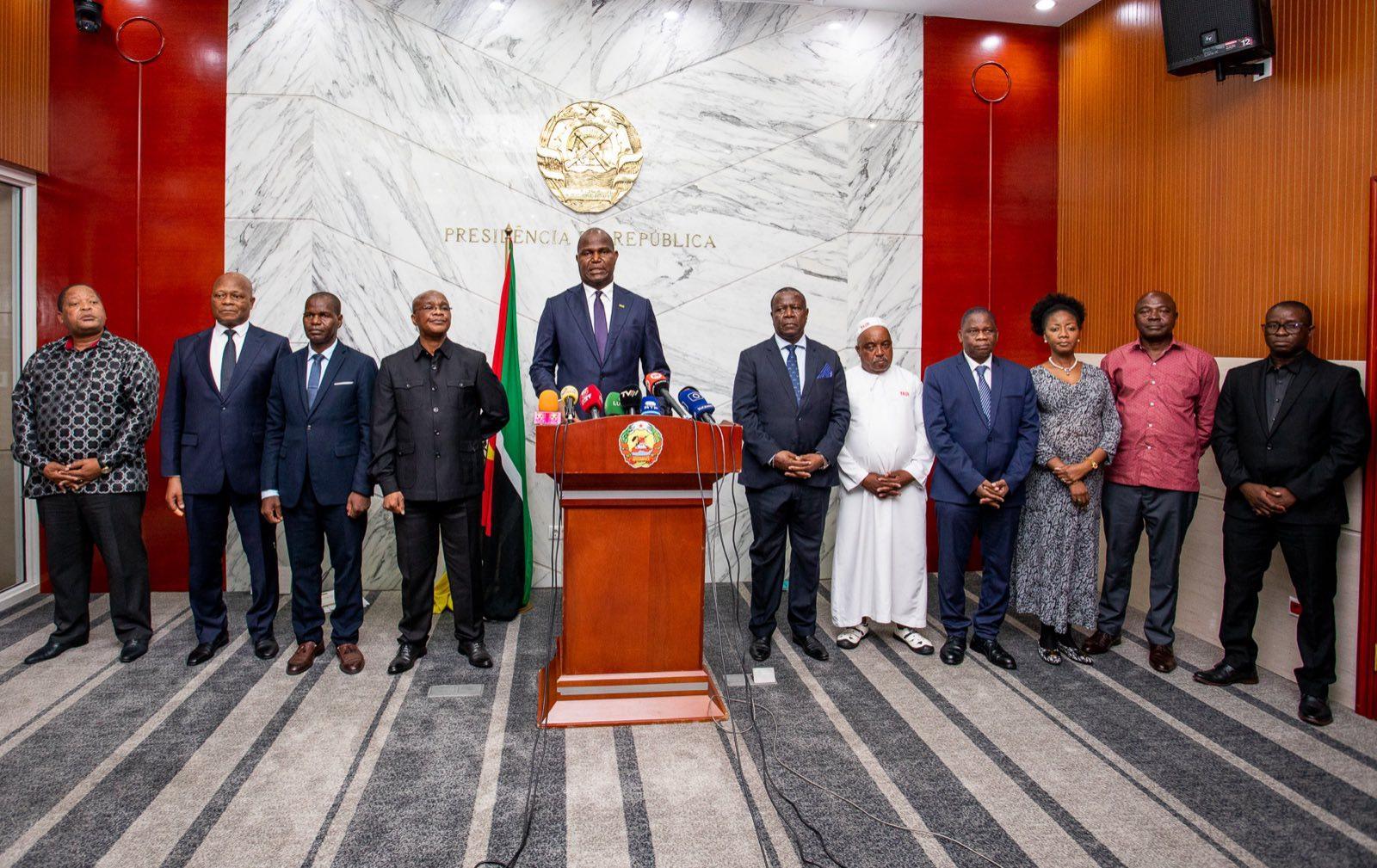Africa-Press – Mozambique. The President of the Republic of Mozambique, Daniel Chapo, announced on Wednesday the creation and approval of three instruments to facilitate the ongoing political dialogue aimed at state reforms and ending instability in the country.
Speaking to journalists at the end of another political dialogue with the leaders of the political parties that signed the political commitment of 5 March, the Mozambican president said that one of the instruments created and approved by the parties covers the terms of reference for the selection of three personalities from civil society.
The political commitment, which was transformed into law by the Mozambican parliament, includes the establishment of a technical committee of 21 members – 18 from political parties and three appointed by civil society – to operationalise political dialogue and discussions on state reforms, with a budget of 91,471,200 meticais (€1.3 million euros) to be provided by the government and political parties, more than half of which will be for attendance fees.
According to the Mozambican president, the members of civil society must be people of “recognised merit, responsibility and competence”.
Chapo and the political parties also approved the proposed regulation that determines the terms of reference for the functioning of the technical committee and its action plan that determines the model for work within the framework of the inclusive national dialogue.
“We will take the next steps so that this national and inclusive dialogue can take place from Rovuma to Maputo, at all levels, and all social strata can participate in the coming years to discuss what we believe we should be as a Mozambican society,” said Daniel Chapo.
Mozambique has experienced almost five months of social tension, with demonstrations initially in protest against the election results of October 9, called by former presidential candidate Venâncio Mondlane.
However, on March 5, Mozambican parties with seats in parliament and in municipal and provincial assemblies signed a political commitment with President Chapo, aiming at state reforms, which was later transformed into law by the Mozambican parliament.
On March 23, Mondlane and Chapo met for the first time and a commitment was also made to end post-election violence in the country, although, currently, mutual criticism and accusations continue in the public positions of the two politicians.
Almost 400 people lost their lives in clashes with the police during the post-election protests, according to data from civil society organizations, which also led to looting and destruction of public and private businesses and infrastructure.
The Mozambican government previously confirmed at least 80 deaths, in addition to the destruction of 1,677 commercial establishments, 177 schools and 23 health units during the demonstrations.
For More News And Analysis About Mozambique Follow Africa-Press






